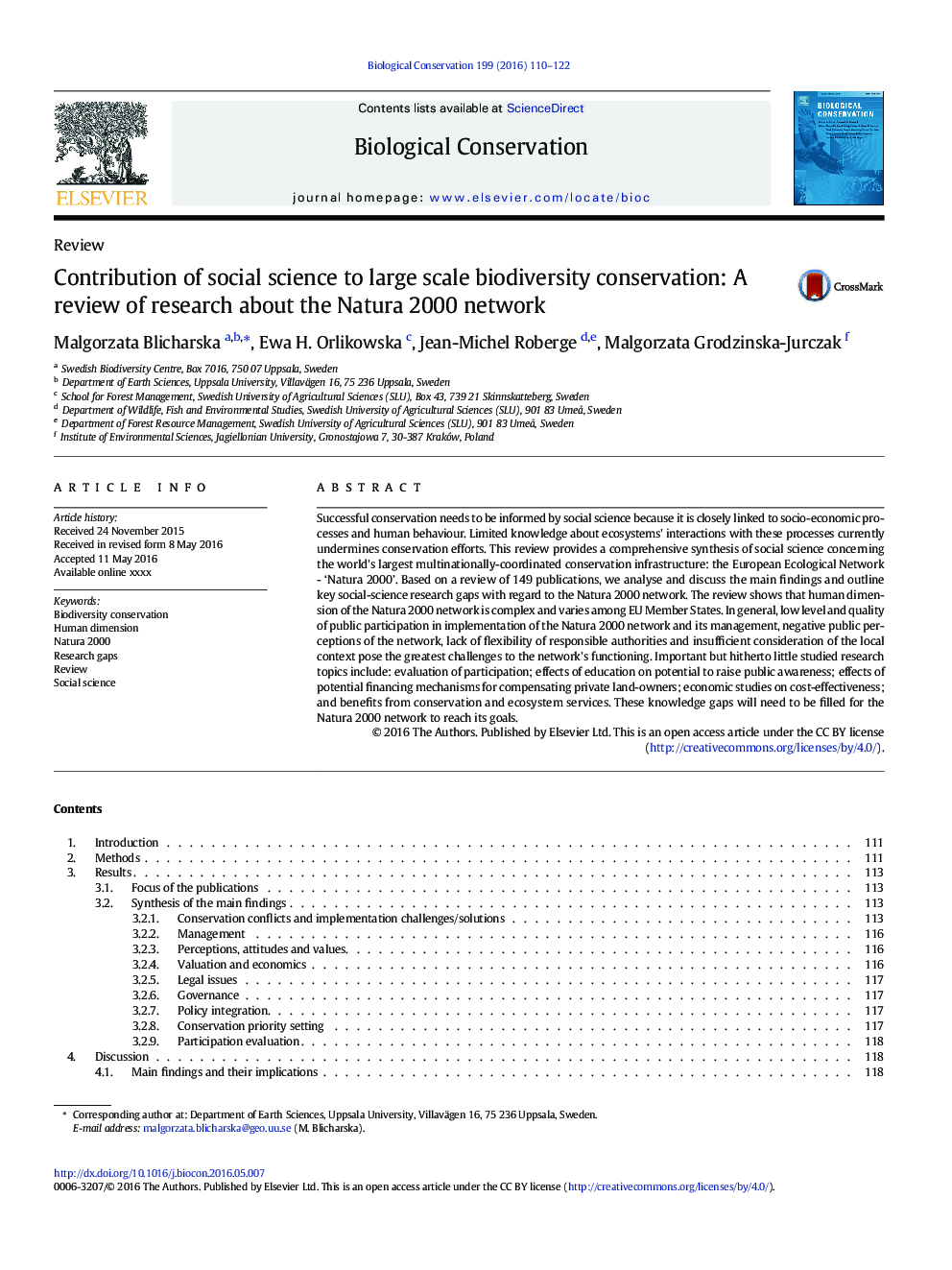| Article ID | Journal | Published Year | Pages | File Type |
|---|---|---|---|---|
| 6298330 | Biological Conservation | 2016 | 13 Pages |
Abstract
Successful conservation needs to be informed by social science because it is closely linked to socio-economic processes and human behaviour. Limited knowledge about ecosystems' interactions with these processes currently undermines conservation efforts. This review provides a comprehensive synthesis of social science concerning the world's largest multinationally-coordinated conservation infrastructure: the European Ecological Network - 'Natura 2000'. Based on a review of 149 publications, we analyse and discuss the main findings and outline key social-science research gaps with regard to the Natura 2000 network. The review shows that human dimension of the Natura 2000 network is complex and varies among EU Member States. In general, low level and quality of public participation in implementation of the Natura 2000 network and its management, negative public perceptions of the network, lack of flexibility of responsible authorities and insufficient consideration of the local context pose the greatest challenges to the network's functioning. Important but hitherto little studied research topics include: evaluation of participation; effects of education on potential to raise public awareness; effects of potential financing mechanisms for compensating private land-owners; economic studies on cost-effectiveness; and benefits from conservation and ecosystem services. These knowledge gaps will need to be filled for the Natura 2000 network to reach its goals.
Related Topics
Life Sciences
Agricultural and Biological Sciences
Ecology, Evolution, Behavior and Systematics
Authors
Malgorzata Blicharska, Ewa H. Orlikowska, Jean-Michel Roberge, Malgorzata Grodzinska-Jurczak,
